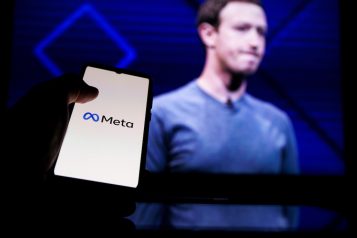
The ongoing legal battle involving President Donald Trump and a civil lawsuit filed in Delaware Chancery Court raises important questions about the balance between presidential duties and the legal accountability of a sitting president. In this case, Trump and his co-defendants—FBI director nominee Kash Patel and White House Deputy Chief of Staff Dan Scavino—are seeking a delay or dismissal of the lawsuit filed by Andy Litinsky and Wes Moss, co-founders of Trump Media & Technology Group. The lawsuit claims that Trump and other company executives orchestrated a scheme to prevent them from receiving their full stake in the company after it went public.
At the heart of the legal argument is Trump’s request for “temporary presidential immunity,” which would shield him from civil litigation filed in state courts while he serves as president. Trump’s legal team argues that defending against this lawsuit—and potentially others—would be a significant distraction from his official duties, impairing the ability of the executive branch to function effectively. According to Trump’s attorneys, ongoing legal battles could “substantially interfere” with the president’s responsibilities, a concern that is amplified by the increasing number of civil lawsuits he faces. In this context, they suggest that the burdens of litigation could detract from the president’s focus on the nation’s priorities.
The request for immunity, if granted, would grant Trump a temporary reprieve from defending himself in state court during his presidency, potentially delaying the case for up to four years. This legal maneuver highlights a complex and nuanced issue: to what extent should a sitting president be shielded from legal challenges, particularly those related to personal and business matters that may intersect with their public office?
The legal basis for such immunity, as outlined in Clinton v. Jones (1997), remains a point of contention. The Supreme Court ruled in that case that a sitting president does not have absolute immunity from civil lawsuits related to personal conduct, but the ruling focused specifically on federal court jurisdiction. Trump’s legal team argues that Clinton v. Jonesapplies only to federal litigation, and that state court cases should be treated differently. The central issue, as Trump’s lawyers present it, is not whether the lawsuit involves presidential duties directly but whether the burden of defending oneself against such lawsuits undermines the president’s ability to perform official duties effectively.
On the other hand, critics of Trump’s request for immunity emphasize the principle that no one, including the president, is above the law. If granted, the immunity Trump seeks would set a significant precedent in limiting the accountability of elected officials. Opponents argue that legal accountability is a cornerstone of democratic governance and that allowing a president to avoid civil litigation could erode public trust in the justice system. After all, civil lawsuits are one mechanism by which individuals and entities can seek redress for perceived wrongs, and this access to justice should not be unduly obstructed by the office held by the defendant.
This case also raises concerns about the interplay between Trump’s business ventures and his role as president. The lawsuit in question concerns Trump Media & Technology Group, which is not directly tied to his presidential duties but is instead a private business matter. As president, Trump placed his financial interest in the company into a trust controlled by his sons, but the potential for conflicts of interest remains a significant issue, particularly given the ongoing legal challenges tied to his business dealings. This lawsuit underscores the complexity of maintaining a clear separation between a president’s private interests and their official role.
While the request for presidential immunity is specific to Trump’s circumstances, it touches on broader constitutional and legal principles that could have long-lasting implications for future presidents. The notion of executive privilege, including whether it should extend to shielding a president from state-level civil lawsuits, remains a point of significant debate. The issue is compounded by concerns that a president’s business interests could create situations where their actions are legally challenged in ways that might distract from governance.
This legal dispute is not only a question of legal doctrine but also of practical governance. The growing number of civil lawsuits faced by Trump—many of which are unrelated to his presidential actions—suggests that the issue of presidential immunity could become more prominent in the future. As the case moves forward, it is important for the courts to carefully consider the implications of granting temporary immunity, weighing the president’s duty to govern against the legal rights of individuals seeking redress in the courts.
In conclusion, the question of whether a sitting president should be immune from civil lawsuits while in office is not a simple one. On one hand, the demands of the presidency are immense, and it is reasonable to argue that excessive legal distractions could interfere with the executive’s ability to govern. On the other hand, the principle of accountability before the law is a cornerstone of democracy that must be protected. How the courts ultimately rule in this case could shape the future of presidential immunity and the legal landscape in which future presidents operate. The balance between legal accountability and the effective functioning of the executive branch is delicate, and it will be up to the courts to navigate these competing interests in a manner that upholds the integrity of both the legal system and the office of the presidency.


















